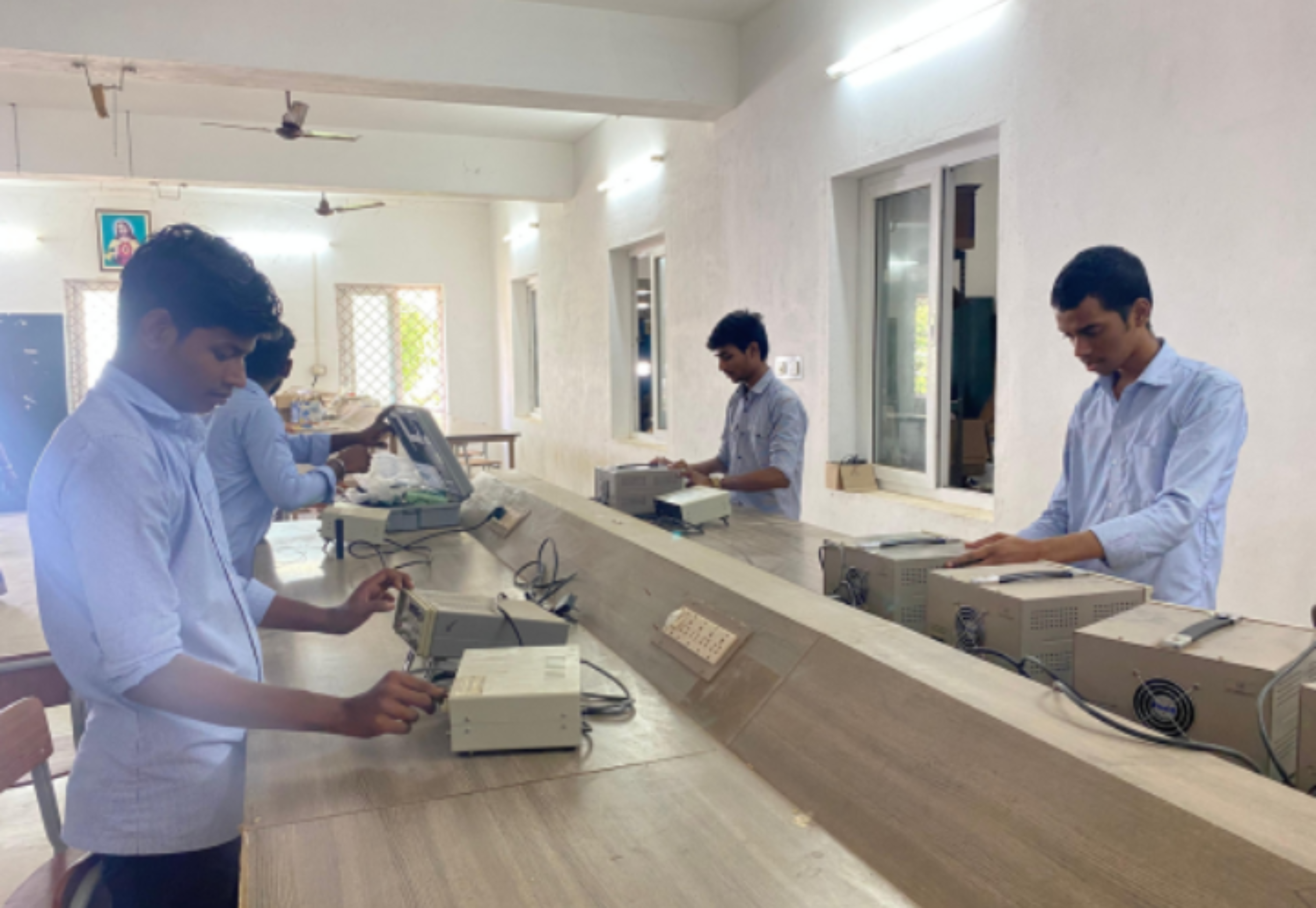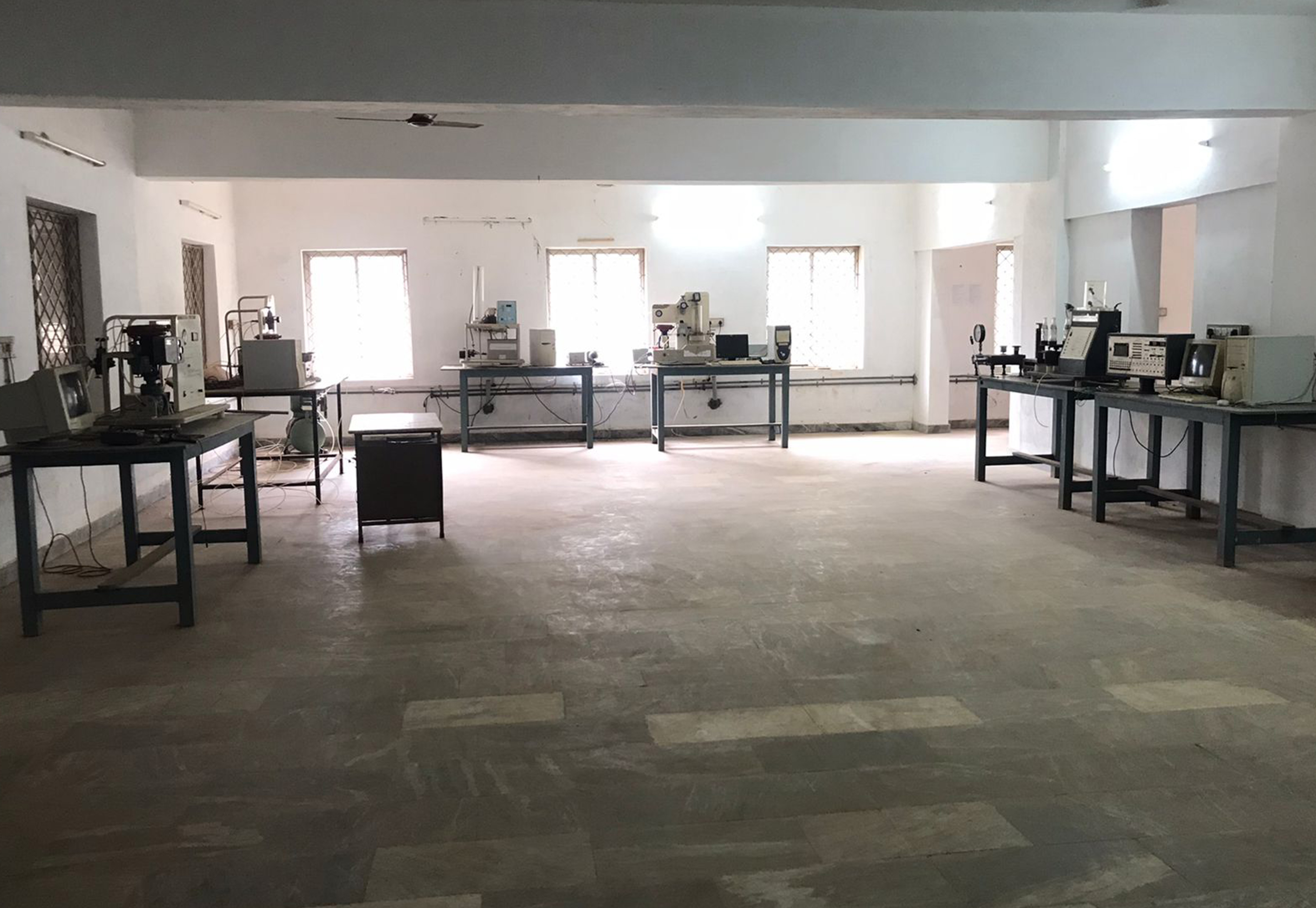The Department of Instrumentation and Control Engineering (ICE) was established in 1995 with the approval of AICTE. It offers an undergraduate B.E. in Instrumentation and Control Engineering with a sanctioned intake of 40 students. The department follows the Anna University curriculum, placing equal emphasis on both theoretical knowledge and practical skills in instrumentation and control systems.
The department is driven by a team of highly qualified, dedicated, and experienced faculty who are committed to providing quality education and fostering innovation. With a well-equipped infrastructure and modern laboratories, students are prepared to meet the growing demands of the instrumentation and control industry. The classrooms are equipped with modern teaching aids, including LCD projectors, and the department library is stocked with textbooks, question banks, and additional reference materials.
Objective
The primary objective of the Instrumentation and Control Engineering Department is to establish itself as a center of excellence, addressing both local and regional needs related to instrumentation engineering. The department aims to produce skilled specialists to meet the growing demand in industries related to electrical power, automation, control systems, and electronic devices.
Key Laboratories and Facilities
The department features modern laboratories equipped with state-of-the-art equipment and facilities to support the practical learning needs of students. These labs offer hands-on experience with real-world applications, ensuring that students gain a deep understanding of core engineering concepts.
- Electrical Workshop:
- Provides practical knowledge on electrical wiring, transformer winding, and machine operations.
- Essential for students in electrical, instrumentation, and other engineering branches.
- Electrical Machines Lab:
- Focuses on the study of DC and AC machines, teaching students about their characteristics and behavior.
- This lab is crucial for electrical engineering students and offers ancillary support for ECE and mechanical students.
- Control System Lab:
- Introduces students to control systems theory, with hands-on design and implementation using MATLAB software and control system toolboxes.
- Includes equipment such as AC/DC servomotors, synchros, position control systems, and controller design kits.
- Measurements and Instrumentation Lab:
- Teaches students how to measure unknown resistance, inductance, and capacitance using bridge circuits.
- Focuses on precise measurement techniques essential in control and instrumentation systems.
- Power Electronics Lab:
- Equipped with power electronic converters, DSP and FPGA-based DC/AC drives, digital integrated kits, and power supplies.
- Demonstrates applications such as SCR characteristics and DC motor control using chopper circuits.
- Embedded Systems and IoT Lab
- Process Control and Instrumentation Lab
- Sensors and Signal conditioning circuits lab
- Industrial Automation System Lab
Activities of the Department
The Department of Instrumentation and Control Engineering organizes various activities to complement classroom learning and provide students with hands-on experience and industry exposure. These activities include:
- Guest Lectures: Delivered by renowned academicians and scientists to augment students’ knowledge and keep them updated with the latest advancements in the field.
- Industrial Visits: Organized regularly to provide students with real-world exposure and supplement their theoretical knowledge.
- In-plant Training: Provides students with practical, hands-on experience in industrial environments.
- Workshops and Expert Lectures: Held to improve students’ communication skills, technical knowledge, and professional development.
- Technical Sessions: Organized regularly for students to interact, exchange ideas, and discuss topics of interest in the field of instrumentation and control engineering.
- Naan Muthalvan courses: For Naan Muthalvan course handling we provide laboratory oriented session for different areas such as both technical and management studies.
Career Opportunities for Instrumentation and Control Engineers
Graduates from the Instrumentation and Control Engineering Department have a wide range of career opportunities in various industries. With the growing demand for automation and control systems, these professionals are in high demand across several sectors, including:
- Power and Energy Sector: Instrumentation engineers are essential in industries that use electrical power and control systems. They are employed in electric power generation, transmission, and distribution sectors.
- Automation and Control: Instrumentation engineers design and manage systems that automate industrial processes. These roles are prevalent in industries such as manufacturing, oil and gas, pharmaceuticals, and chemical processing.
- Robotics and Embedded Systems: Engineers specializing in control systems and embedded technologies are involved in designing robotic systems, automation hardware, and embedded controllers used in various applications.
- Electronics and Microprocessor Systems: Instrumentation engineers work in industries related to microprocessors, controllers, integrated circuits, and power electronics, which are integral to modern electronic devices.
- Research and Development (R&D): Many graduates pursue careers in R&D, where they work on developing innovative solutions for control systems, automation technologies, and energy-efficient devices.
- Process Control Engineer: Graduates may work in industries like oil and gas, chemical manufacturing, and food processing, where they oversee and maintain the control systems used in automated production lines.
- Software and Simulation Engineer: Engineers skilled in control systems and simulations may work with tools like MATLAB and PSPICE to develop control algorithms and simulation models for complex industrial systems.
As industries continue to adopt automation and advanced control systems, the demand for Instrumentation and Control Engineers will continue to rise. These professionals are crucial in optimizing production, ensuring system reliability, and driving innovation across various sectors.











